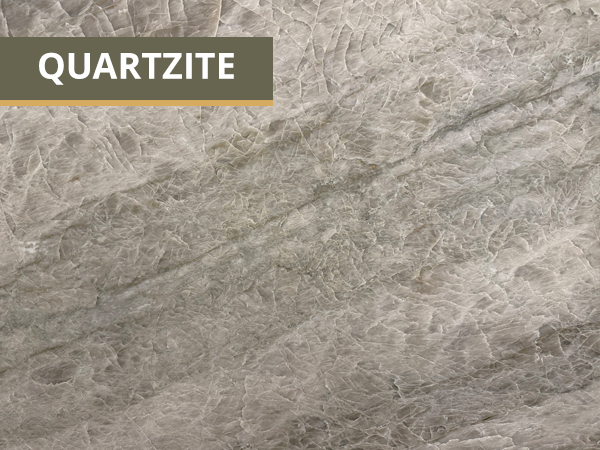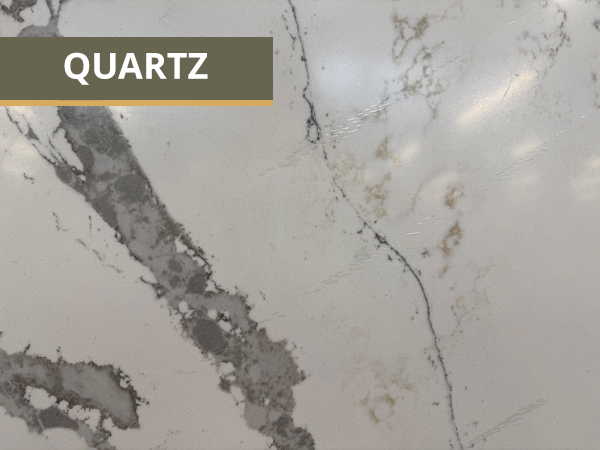Quartzite vs. Quartz: A Countertop Showdown
When it comes to selecting the perfect material for countertops, both natural quartzite and engineered quartz often top the list. While their names are nearly identical, these materials differ significantly in composition, performance, and maintenance.
Quartzite is a naturally occurring metamorphic rock formed when sandstone is subjected to intense heat and pressure within the earth’s crust. This process recrystallizes the sand grains and silica, fusing them into an incredibly hard and durable stone. The result is a surface known for its natural beauty and unique veining. Often mistaken for marble, quartzite has superior scratch and etch resistance, making it an excellent choice for kitchen and bathroom countertops.
Quartz, is a man-made material composed of about 90–95% crushed natural quartz crystals, combined with resins, polymers, and pigments. The mixture is molded into slabs and cured, creating a non-porous, uniform surface. Quartz comes in range of colors that may mimic natural stone. In addition, quartz can come in bold color palettes that are outside of the realm of colors found in natural materials.


Similarities Between Quartzite and Quartz
Despite their differences, quartzite and quartz share a few key qualities:
- Durability: Both materials are hard and resistant to scratches.
- Aesthetic appeal: Each offers elegant, luxury countertops suitable for kitchens, bathrooms, and bar areas.
- Popular choices: Both are widely used in residential and commercial countertop applications.
- Cost: Both materials have a large range of pricing options from mid to high.
Key Differences
| Feature | Quartzite (Natural) | Quartz (Engineered) |
| Material Type | 100% natural stone | Man-made composite of quartz crystals and resin |
| Appearance | Natural, unique veining—often resembles marble | |
| Durability | Extremely hard, heat-resistant | Durable but can be damaged by exposure to high heat |
| Maintenance | Requires sealing to protect against stains. Clean with a natural stone cleaner. | Clean with manufacturer recommend cleaners. |
| Stain Resistance | Excellent when sealed properly with a penetrating sealer | Excellent |
| UV Resistance | UV-stable—ideal for outdoor use | Can discolor or fade with prolonged sun exposure. Not recommended for outdoor installations. |
| Installation | High level of complexity in fabrication. Recommend an experience natural stone fabricator. | Contains silica. Must be fabricated in a controlled environment to protect workers from exposure. |
| Environmental Impact | Natural product, quarrying involved | Man-made with resins—less natural but sometimes greener with recycled content |
Which One Should You Choose?
- Choose Quartzite if you want a natural look with exceptional hardness and are comfortable with natural variation.
- Choose Quartz if you prefer to have more control over variation and are looking for a low maintenance option in high use areas.
While both quartzite and quartz offer long-lasting beauty and function, the right choice depends on your priorities. If you’re drawn to the authenticity and individuality of natural stone, quartzite is hard to beat. But if ease of care and design flexibility matter more, quartz may be your go-to. Whatever your preference, either material can provide years of reliable service and elevate the style of your home.
